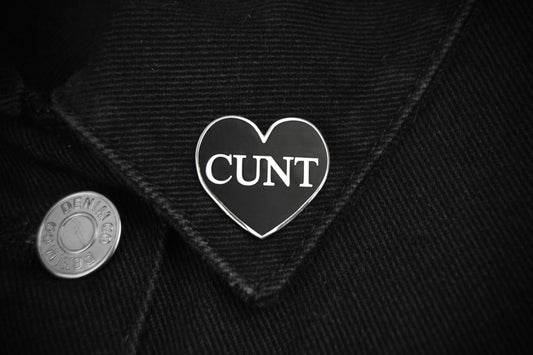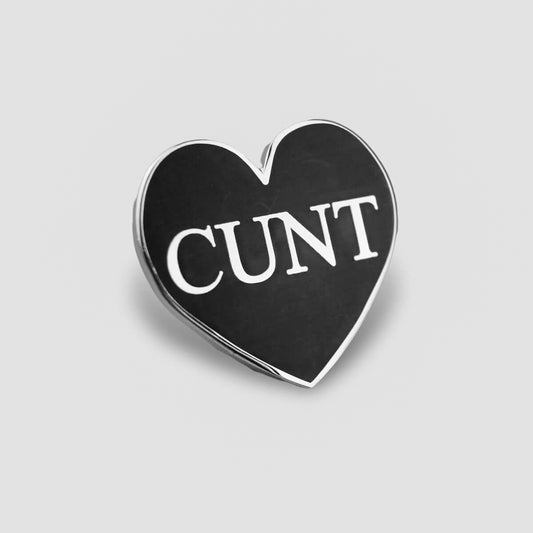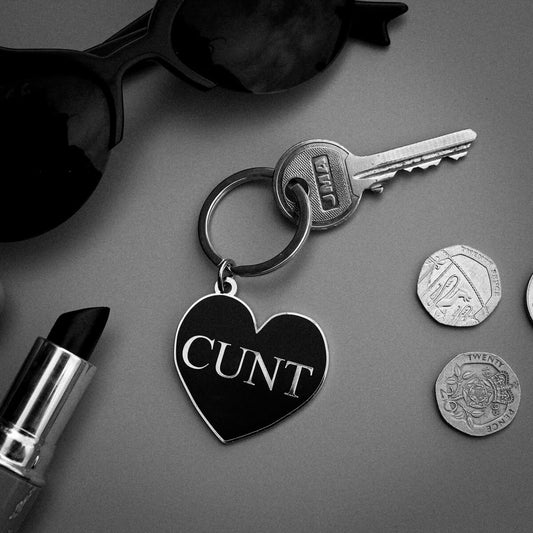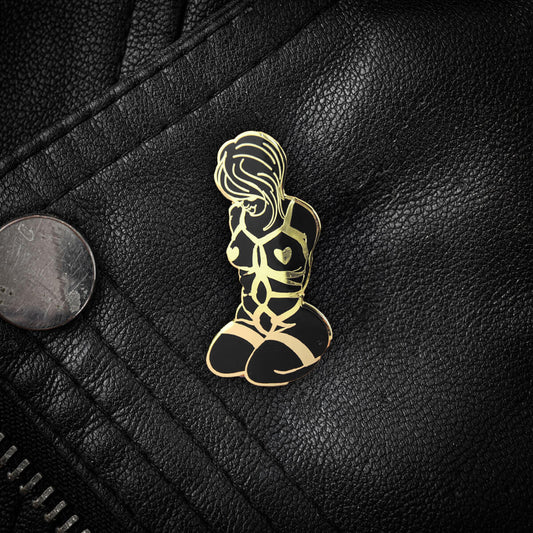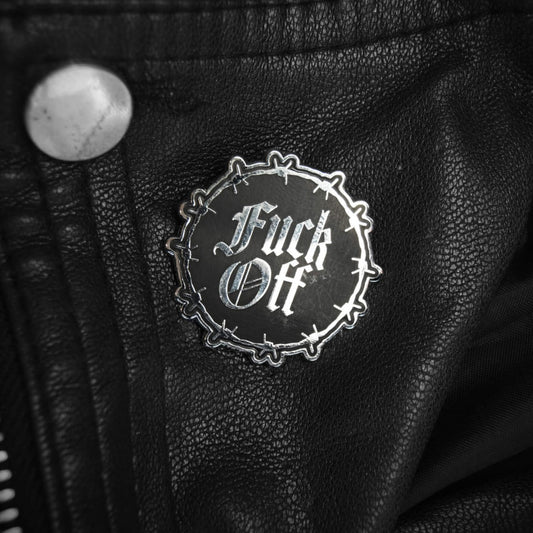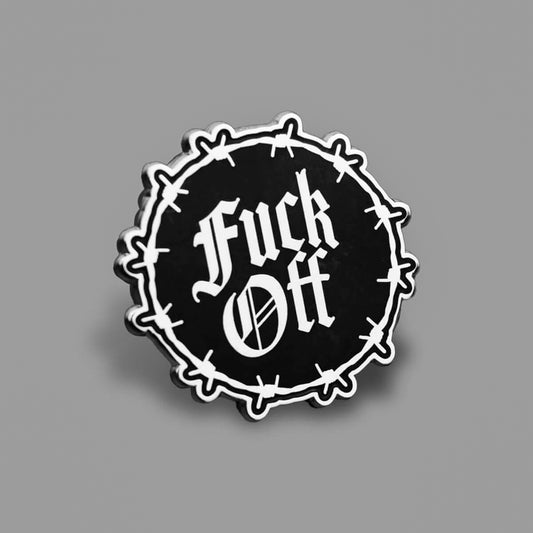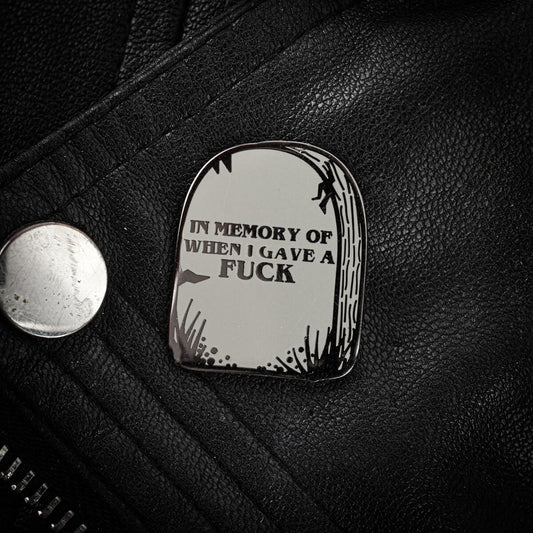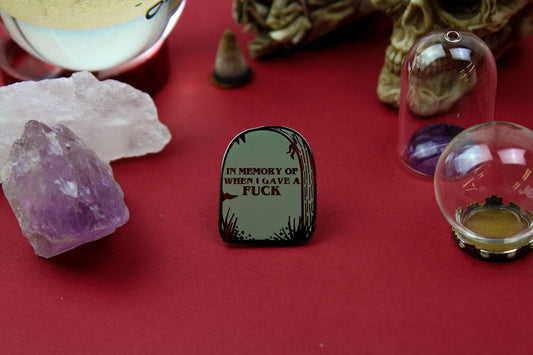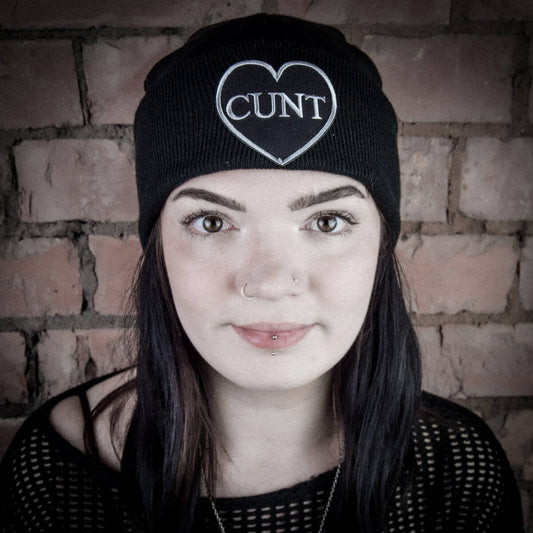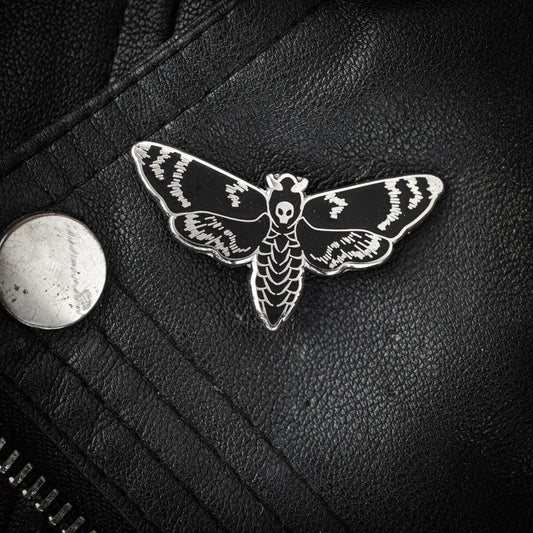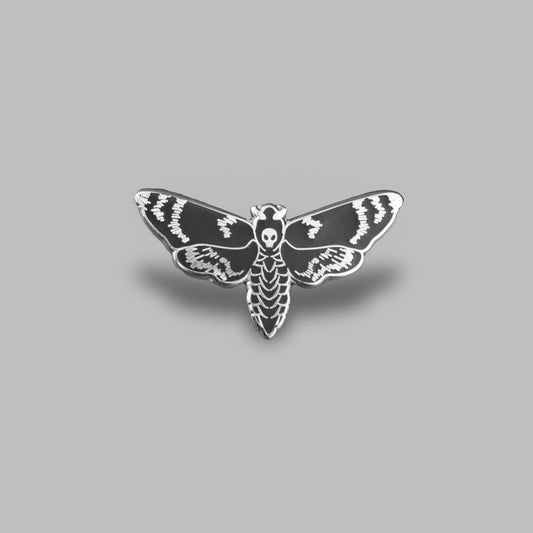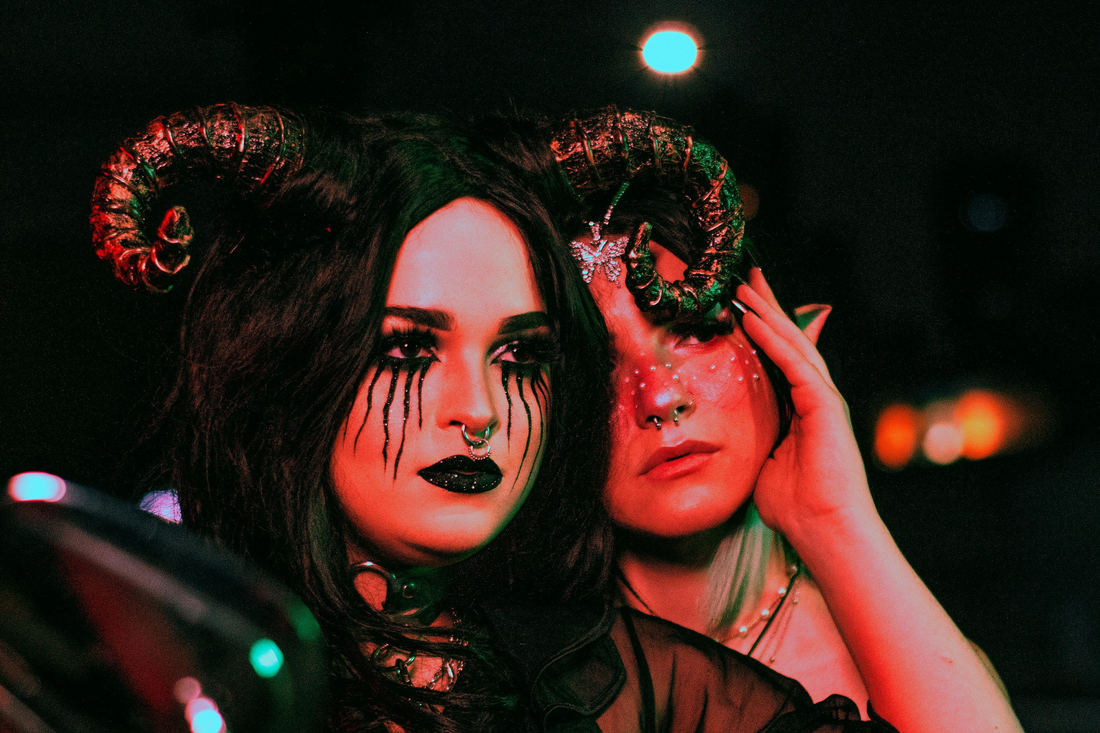
Are There Any Events or Festivals Dedicated to Goth Culture?
Share
The goth subculture, with its distinctive blend of dark aesthetics, alternative music, and introspective themes, has grown far beyond its 1980s post-punk origins. Today, it remains a globally recognised and deeply influential movement. Central to its ongoing vibrancy is the array of events and festivals dedicated to celebrating all things goth. While outsiders may focus on its more recognisable elements - black clothing, sombre makeup, and ethereal music - those within the scene understand that these gatherings are far more than just surface-level spectacles. Events and festivals serve as the beating heart of goth culture, essential for its community, expression, and continuation.
For members of the goth subculture, these festivals provide more than just a weekend of performances or themed parties. They are crucial spaces for communal bonding and identity affirmation, where participants can freely express themselves in ways that may feel constrained in everyday life. It's not simply about wearing the right clothes or listening to specific bands - though music, fashion, and aesthetics do hold a strong place - it's also about immersing oneself in a collective environment that fosters deeper connections with others who share similar views and sensibilities. In fact, such gatherings have become a sanctuary where attendees find solidarity in a world that often misunderstands or caricatures goth culture.
At the centre of this vibrant culture are the major festivals that draw goths from all over the world, offering more than just a weekend of entertainment. These gatherings act as cultural touchstones, reinforcing the deep community bonds and creative spirit that define goth. Among the most prominent festivals are Wave-Gotik-Treffen in Germany, Whitby Goth Weekend in the UK, and M'era Luna in Germany - each of which has carved out its own unique space in the goth calendar.
Wave-Gotik-Treffen (Germany)
Wave-Gotik-Treffen, often referred to simply as WGT, is the undisputed heavyweight of goth festivals. Held annually in Leipzig, Germany, this massive event pulls in tens of thousands of attendees from across the globe, making it the largest goth festival in existence. Since its inception in 1992, WGT has become a cornerstone of the goth community, offering much more than just music. It’s a sprawling cultural experience that stretches across the city for an entire weekend.
At its heart, WGT is a music festival, with hundreds of bands performing everything from goth and darkwave to industrial and neofolk. But what truly sets it apart is the sheer breadth of activities on offer. Alongside concerts, there are art exhibitions, fashion shows, theatre performances, and even historical markets, creating a multi-layered experience that goes far beyond the typical festival fare. The entire city of Leipzig gets involved, with museums and galleries hosting special events, making it feel as though the whole place has been taken over by goth culture for a few days each year.
WGT is a pilgrimage for many goths, a place where they can fully immerse themselves in the culture and connect with others who share their passion. The festival’s vast scale and diversity make it a truly one-of-a-kind experience, and its role in sustaining the goth community can’t be overstated.
Whitby Goth Weekend (UK)
While WGT may hold the title of the largest goth festival, Whitby Goth Weekend in the UK has its own unique draw. Held twice a year in the small coastal town of Whitby, this event is steeped in gothic history, most notably because of its connection to Bram Stoker’s Dracula. The eerie beauty of Whitby’s windswept cliffs and gothic architecture provides a fitting backdrop for a weekend of dark festivities.
Founded in 1994, Whitby Goth Weekend has grown from a small gathering of friends into one of the UK’s most iconic goth events. What makes it stand out is its combination of music, fashion, and historical context. The festival is as much about soaking in the town’s literary atmosphere as it is about the live bands that perform. Whitby itself plays a starring role, with its cobbled streets and dramatic Abbey ruins setting the scene for a weekend of elaborate costumes and a shared love of all things gothic.
Fashion is a major part of Whitby Goth Weekend’s appeal. The streets are lined with goths dressed in everything from traditional Victorian mourning garb to more modern, edgy interpretations of the style. It’s not just a festival; it’s a fashion show, a cultural event, and a nod to the deep literary roots that goth culture often draws upon. For attendees, it’s a chance to showcase their creativity while connecting with others who share their love of the macabre.
M'era Luna (Germany)
For those who prefer their goth festivals with a bit of edge, M'era Luna offers a perfect blend of goth, metal, and industrial music. Held annually in Hildesheim, Germany, this festival brings together a diverse mix of musical acts and a bustling marketplace, making it a go-to event for fans of darker, heavier sounds. Since its start, M'era Luna has gained a reputation for attracting a wide range of attendees - from hardcore metalheads to more traditional goths, all united by their love of alternative music and aesthetics.
M'era Luna isn’t just about the music, though that’s certainly a major draw. The festival is known for its emphasis on fashion, with a thriving marketplace where attendees can pick up everything from custom-made goth clothing to intricate jewellery and crafts. One of the highlights is the fashion show, which brings the creativity and innovation of goth designers to the forefront, showcasing everything from steampunk-inspired looks to more classic goth styles.
What sets M'era Luna apart is its ability to attract a more eclectic crowd while still staying true to the roots of goth culture. It’s a festival that celebrates the full spectrum of dark aesthetics, from the music to the style, and has become an essential event for anyone involved in the scene.
Other Big Goth Events
Beyond the major festivals that anchor the goth calendar, there are equally intriguing gatherings that cater to specific interests within the subculture. Events like the Gothic Cruise, Bats Day in the Fun Park, and Infest offer distinctive experiences, combining music, art, and lifestyle in creative and unexpected ways.
Gothic Cruise (USA/International)
One of the more unusual but beloved events in goth culture is the Gothic Cruise, an annual event that takes the scene out to sea. You might think a fun cruise is the least goth thing you can do, but since 1989, this international gathering has become a favourite for those seeking a more unconventional way to celebrate their gothic identity. The concept is simple but appealing: a traditional cruise is transformed into a floating goth festival, complete with concerts, themed parties, and activities catering to the darkly inclined.
What makes the Gothic Cruise so distinctive is how it blends the typical elements of a holiday with the immersive atmosphere of a goth gathering. Onboard, attendees can enjoy live performances by goth, industrial, and darkwave bands, all while sailing through exotic locations. The cruise offers workshops, DJ sets, costume contests, and themed nights, creating a full goth experience that’s as much about community as it is about the music. For those who may feel out of place in more traditional settings, the Gothic Cruise offers a sense of camaraderie and inclusion - where even in the middle of the ocean, they can express themselves freely.
This event brings together goths from all over the world, offering an intimate yet wide-reaching platform for interaction. It’s a place where the usual goth festival trappings are combined with the laid-back luxury of a cruise, creating an experience that feels both personal and expansive. For many, the Gothic Cruise is a yearly highlight, offering not only a unique vacation but a chance to connect with the global goth community.
Bats Day in the Fun Park (USA)
Few goth events are as delightfully eccentric as Bats Day in the Fun Park, a one-of-a-kind gathering that brings goths to Disneyland for a day of dark fun. This unconventional event started in 1999 as a small meet-up but has since grown into an annual pilgrimage for goths and alternative culture fans from across the country. It’s proof that goth culture doesn’t always take itself too seriously and can embrace a bit of whimsy along with its darker themes.
Held in Anaheim, California, Bats Day transforms Disneyland into an unofficial goth playground, with attendees donning their best gothic, steampunk, and alternative attire. The contrast between the cheerful, family-friendly environment of Disneyland and the moody, gothic aesthetic of the participants creates a striking and humorous juxtaposition. It’s not a formal festival in the traditional sense - there are no concerts or stages - but rather a gathering of like-minded people who enjoy the idea of mixing goth culture with a day at the theme park.
For many, Bats Day has become a key social event within the goth community, a place where they can meet others, take photos in iconic locations, and enjoy the surreal experience of being part of a large, visible alternative group within Disneyland. It’s lighthearted, quirky, and proves that goths can have fun in unexpected places.

Infest (UK)
On the other side of the Atlantic, Infest offers a more music-focused experience, tailored to fans of electronic and industrial genres that sit within the broader goth scene. Held annually in Bradford, UK, since 1998, Infest has built a reputation as one of the go-to festivals for those who prefer the harder, more electronic side of goth culture. It’s a smaller, more intimate festival compared to some of the bigger goth gatherings, but what it lacks in size, it more than makes up for in atmosphere and musical quality.
Infest’s lineup is carefully curated to showcase the best in industrial, EBM (Electronic Body Music), synthpop, and experimental electronic music, attracting an audience that spans not only goth but also those interested in the wider spectrum of underground electronic sounds. This focus has given Infest a dedicated following of music lovers who appreciate its emphasis on cutting-edge, alternative electronic acts. Over the years, the festival has hosted performances from genre-defining artists and up-and-coming acts alike, making it an essential destination for those who want to stay ahead of the curve in the alternative music scene.
While music is the main focus, Infest also embraces the art and fashion aspects of goth culture, with stalls selling clothing, accessories, and art that appeal to attendees’ alternative tastes. The event’s smaller scale fosters a tight-knit, community-driven atmosphere, where regulars return year after year to reconnect with old friends and discover new music. For those who are deeply embedded in the industrial and electronic side of goth, Infest is a must-attend event.
Small Regional Festivals
While major festivals like Wave-Gotik-Treffen and Whitby Goth Weekend tend to dominate headlines, the goth subculture thrives just as much in regional and local gatherings, which offer their own unique flavour and a more intimate sense of community. These events are vital for maintaining the grassroots spirit of goth, providing spaces for lesser-known bands and emerging artists to showcase their work. Festivals like Drop Dead Festival, Convergence, and Goth City Festival embody this ethos, each offering a distinct experience that taps into the local scene while staying true to the broader goth culture.
Drop Dead Festival (Various Locations)
Drop Dead Festival stands out as one of the more nomadic and underground-focused events in the goth world. Originally launched in New York City in 2003, this festival has travelled across various international locations, from the USA to Europe, always maintaining its focus on alternative and DIY elements within the goth scene. Unlike the larger, more mainstream goth festivals, Drop Dead prides itself on showcasing underground and experimental music that doesn’t always get the spotlight elsewhere. It's a festival for those who want to discover something new, where avant-garde performances and emerging artists take centre stage.
Drop Dead Festival has built a reputation for being fiercely independent, drawing a crowd that appreciates the more fringe aspects of goth culture, including punk, deathrock, and post-punk revival sounds. It’s not just a place to catch live music - though the lineup often features some of the most cutting-edge acts in the genre - it’s also a space for creative workshops, art exhibits, and alternative fashion shows. The festival’s roaming nature adds to its underground appeal, bringing its unconventional spirit to new cities and new audiences.
For those looking to avoid the more commercialised aspects of goth culture, Drop Dead Festival is an essential gathering. Its DIY ethos and commitment to the underground make it a vital platform for artists and fans who prefer to keep the edges of the scene sharp and unpolished.
Convergence (USA)
Convergence, one of the USA’s longest-running goth events, is a community-driven festival that changes location each year, reflecting the nomadic nature of the subculture itself. Founded in 1995, Convergence is organised by goths, for goths, with different host cities taking on the responsibility of creating a unique event every year. This annual gathering has become a staple for goths across the US, offering a rich mix of live performances, DJs, panels, and social gatherings, all focused on celebrating goth music, fashion, and culture.
What sets Convergence apart is its deeply community-oriented approach. Each year’s event is planned and executed by local volunteers from the host city, giving each iteration of the festival its own local flavour. Whether it’s held in a bustling metropolis like New York or a more laid-back city like Portland, the festival adapts to its surroundings, drawing on local talent while still bringing in national and international acts. It’s this adaptability and grassroots organisation that have kept Convergence relevant for nearly three decades.
Convergence is less about large-scale spectacle and more about fostering connections within the goth community. The festival offers a chance for attendees to meet, collaborate, and exchange ideas, making it a vital part of the goth landscape in the US. Its community-first mindset ensures that Convergence continues to thrive, offering a supportive space where the DIY spirit of goth remains alive and well.
Goth City Festival (Leeds, UK)
Closer to home, Goth City Festival in Leeds showcases the depth and richness of the local goth scene, with a focus on celebrating Leeds’ important role in goth history. The city has long been a hotbed of goth culture, thanks in part to its association with bands like The Sisters of Mercy, who helped define the genre in the 1980s. Goth City Festival taps into this legacy while shining a light on contemporary local bands and artists, giving them a platform to perform alongside more established acts.
Launched in 2016, Goth City Festival spans multiple venues across Leeds, offering a packed programme of live music, art exhibitions, and talks. Unlike larger festivals that might focus solely on big-name acts, Goth City places a strong emphasis on supporting local talent, ensuring that Leeds’ vibrant alternative scene continues to thrive. This focus on the city’s cultural roots makes Goth City a particularly special event for attendees, who get to experience the spirit of goth in one of its spiritual homes.
In addition to the music and arts, Goth City Festival has a strong charitable ethos, with proceeds going to local causes. This combination of community focus, local talent, and historical significance makes Goth City a standout event, not only for those in Leeds but for goths across the UK who want to experience the scene in a more intimate setting.
Famous Goth Clubnights
For those who live and breathe goth culture, the scene doesn't just exist at festivals - it thrives in the pulse of regular themed nights and club events. These gatherings, often held in dark, atmospheric venues, provide a vital space for people to indulge in the music, fashion, and social aspects of the subculture on a more frequent basis. In cities like London, iconic club nights such as Slimelight and Club Antichrist have become legendary, while themed events like the Vampire Ball take the theatrical elements of goth to the next level. These events are the lifeblood of the goth community, offering regular opportunities to gather, dance, and celebrate the darker side of life.
Slimelight (London, UK)
Slimelight is a name that resonates far beyond the boundaries of London. As one of the world’s longest-running goth and industrial club nights, Slimelight has become a cornerstone of goth nightlife. Established in 1987, this iconic event has not only survived but thrived through multiple decades, adapting to the evolving tastes of its dedicated crowd while still staying true to its roots. Slimelight is more than just a night out - it’s an institution.
Housed in the multi-level Electrowerkz venue in Islington, Slimelight offers a sprawling, immersive experience. Attendees can roam between different floors, each dedicated to a different musical style, ranging from goth rock and darkwave to EBM and industrial. This variety allows the event to cater to a wide spectrum of goths, whether they prefer the mournful tones of goth rock or the harsher beats of industrial music. The club’s dark, atmospheric aesthetic, combined with its eclectic crowd, makes it a space where self-expression is celebrated, and everyone from longtime goth veterans to newcomers can feel at home.
Slimelight’s longevity is a testament to its importance within the goth scene, not just in London but globally. It’s a place where the scene’s old guard rubs shoulders with the next generation, ensuring that goth culture remains dynamic and inclusive. For anyone serious about goth or industrial music, a night at Slimelight is a rite of passage.
Club Antichrist (London, UK)
If Slimelight represents the long-standing traditions of the goth scene, Club Antichrist stands as its edgier, more transgressive counterpart. Also based in London, Club Antichrist has gained a reputation as one of the wildest and most daring alternative club nights in the UK. Founded in 2004, it has since become a haven for those who want to push the boundaries of goth, industrial, and alternative electronic music, while also indulging in some of the more provocative aspects of subcultural nightlife.
What sets Club Antichrist apart is its mix of music, performance, and atmosphere. The club blends dark beats with fetish-inspired performances, creating an environment where the lines between goth, industrial, and alternative subcultures blur. The event spans multiple rooms, each with its own distinct vibe, from pounding industrial dance floors to more experimental electronic sets. It's a place where attendees can not only dance but also explore their alternative lifestyles in a safe, inclusive space. The club’s fusion of music, performance art, and subversive fashion makes it a truly unique experience within the goth scene.
For those who want their clubbing experience to be a little more intense and theatrical, Club Antichrist is the place to be. It’s not just a night out; it’s an event where people can fully immerse themselves in the darker, more provocative side of alternative culture, making it a standout on London’s goth nightlife calendar.
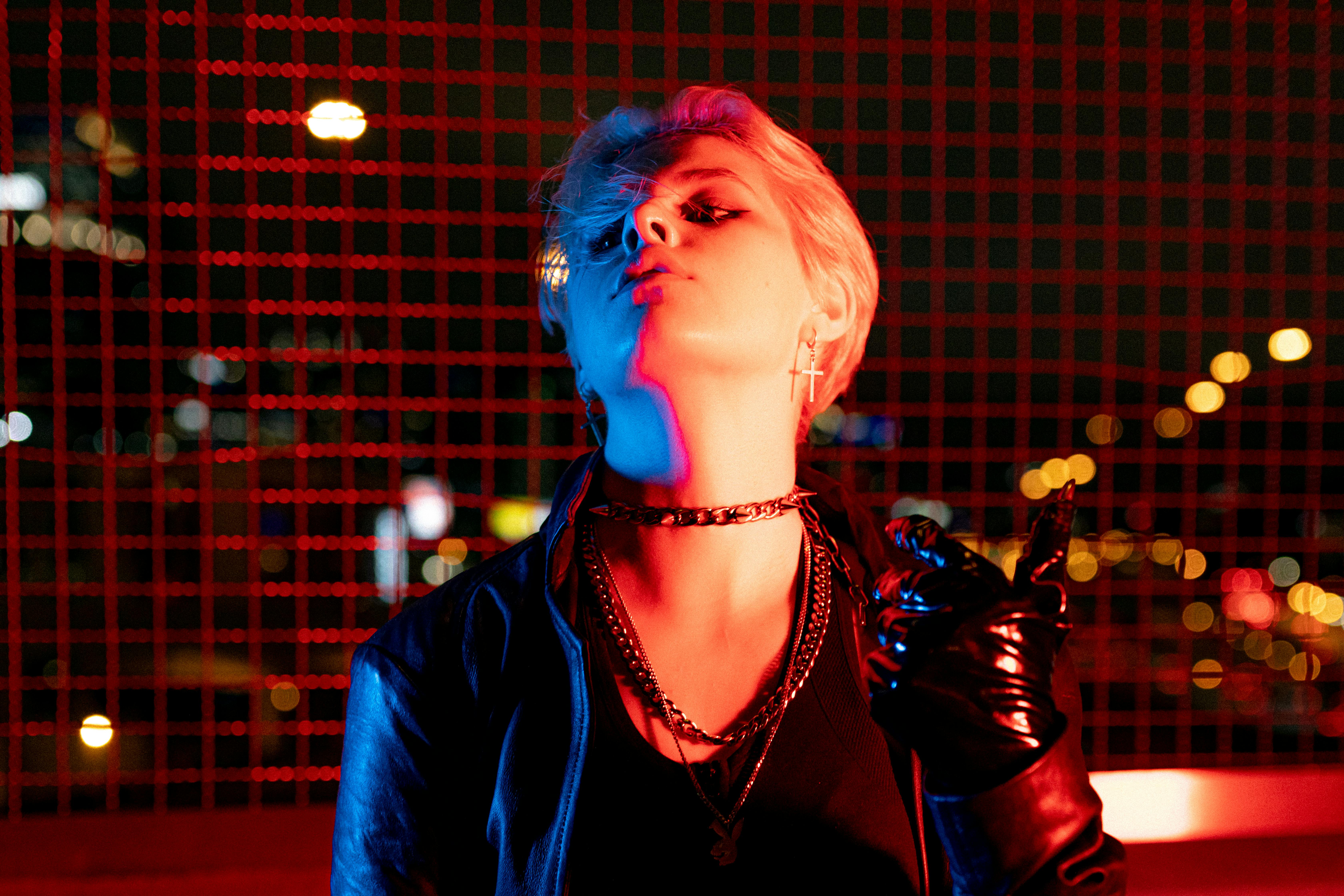
Art & Other Goth Events
Goth culture isn’t limited to music, fashion, or nightlife - it also has deep ties to literature, art, and social activism. Cultural and educational events provide an intellectual and community-focused dimension to the scene, offering spaces where goths can engage with the history, ideas, and values that underpin the subculture. Events like Gothic Weekend at the British Library, Gothic & Alternative Picnics, and Gothic Pride reflect the diversity and complexity of goth culture, offering platforms for exploration, connection, and celebration in ways that go beyond the typical club or festival experience.
Gothic Weekend at the British Library
For fans of gothic literature, Gothic Weekend at the British Library is a must-attend event that taps into the deep literary roots of goth culture. Held occasionally, these weekends offer a curated mix of talks, screenings, and performances that explore the genre’s lasting impact on both literature and broader culture. From the eerie works of Edgar Allan Poe to Mary Shelley’s Frankenstein and Bram Stoker’s Dracula, gothic literature has shaped the aesthetic and themes of the subculture since its inception, and the British Library’s events provide an opportunity to engage with this legacy in a scholarly yet accessible way.
These weekends often feature talks by authors, academics, and cultural critics who explore various aspects of gothic fiction and its continuing relevance. Whether it's discussing the role of the supernatural in literature or examining how gothic themes have migrated into modern media, these events offer a deeper understanding of the cultural and intellectual threads that run through the goth scene. In addition to talks, there are usually film screenings, performances, and exhibitions that highlight how gothic literature has inspired other art forms, making it a comprehensive celebration of all things dark and mysterious.
For goths who are particularly interested in the literary and artistic elements of the subculture, Gothic Weekend at the British Library provides a rare opportunity to indulge in a more cerebral, reflective take on the themes that define goth. It’s a chance to move beyond the aesthetic and dive into the ideas and narratives that have shaped the movement for centuries.
